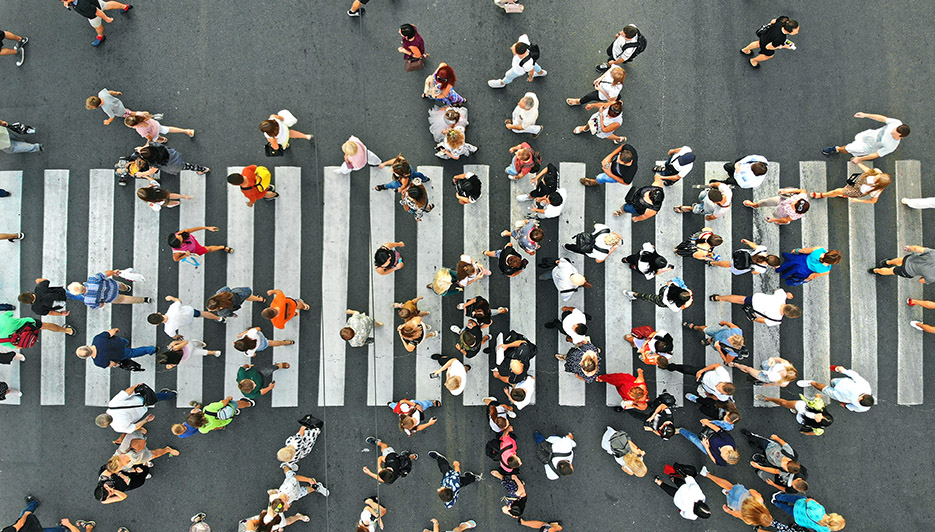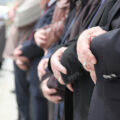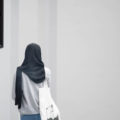A universal virus with unequal challenges
A universal virus with unequal challenges
Covid-19 does not discriminate. Your race, religion, ethnicity, gender identity, or political affiliation do not protect against the virus or make one more vulnerable. We are all at risk of contracting an infection and we all have to work together to stop the spread. But has the financial and emotional burden been the same to all? The experience of Europe’s Islamic community says otherwise.
There is no denying the ongoing coronavirus pandemic has been difficult for Europeans everywhere. From the obvious health scare, to financial concerns, to normal interactions and events being turned upside down with social distancing – things are far from normal. However, for several of Europe’s communities, such as the continent’s Islamic community, there have been added difficulties. During this time, Muslims across Europe have witnessed Islamophobia take on new forms and been forced to compromise deep-seated Islamic customs because of the restrictions.[1] [2] Further, Ramadan was also quite difficult to observe during this time as there were both health concerns over the safety of fasting and restrictions on traveling and large gatherings.[3] These challenges have all combined to make this already difficult time that much more taxing for Muslims across Europe.
Islamophobia: new form, new challenges
Prior to the pandemic, there were reports that Islamophobia was already on the rise all across Europe but especially in the two nations with the largest Muslim populations – Germany and France. As the number of hate crimes against Muslims continues to increase, members of Germany’s Islamic community have justifiably said they simply do not feel safe anymore.[4] Unfortunately, the pandemic did nothing to stop the attacks and rather only encouraged them to take on a new form. For example, a Turkish family in Hamburg, Germany received a letter that allegedly contained the coronavirus with a note from the sender stating “Die, die slowly. Leave Germany to the Germans.”[5]
There have also been claims suggesting Muslims aim to benefit from the virus. In India, members and leaders of the Bharatiya Janata Party have claimed Muslims plan to use the coronavirus to attack Hindus and other non-Muslims by licking food and violating lockdown regulations.[6] The fake videos and false claims that have circulated online have been flatly denied but reports of what is being called #CoronaJihad continue. Europe has not been immune to these incredibly discriminatory and Islamophobic claims. A cartoon that depicts a veiled Muslim woman with the coronavirus molecule hiding behind the face screen was published in late March in the widely-circulated Grecian newspaper Ekathimerini.[7] In contrast, though Islamophobia has certainly continued in other ways, the pandemic has brought some minor positive developments for France’s Muslim community. Since 1989, the nation has instituted controversial bans on head coverings and full-face veils, which many argue blatantly target Muslim women. Leaders have justified the bans with claims that face and head coverings pose a security threat and are symbols of women’s oppression. However, the nation’s new Covid-imposed face mask requirement has sparked new debates around the legitimacy of those arguments.[8]Some have gone so far as to argue that the present face-mask requirement shows the “absurdity” of the leaders’ statements.
Gravesite shortage
As has been widely reported, Italy has been especially hit hard by the virus and the nation’s Muslim community is no exception. It is an Islamic tradition that the dead must be buried as quickly as possible, preferably within 24 hours. However, for the Italian Muslim community, this has simply not been possible during the pandemic.[9] [10]Throughout Italy, there are a limited number of Islamic burial sites as there are few strictly Muslim cemeteries and only a sparing number of Catholic cemeteries with Muslim-only sections. This has resulted in members of Italy’s Islamic community having to postpone burials and travel long distances to ensure their loved ones could receive a dignified burial.
An unprecedented Ramadan
Lastly, throughout the pandemic, multiple religious communities have been forced to forgo their traditional celebrations for some of their most revered religious holidays, such as Jews with Passover and Christians with Easter.[11] [12] However, for Muslims these challenges carried on for an entire month in their observance of Ramadan. Like Passover, Ramadan is a very communal time for Muslims as normally the faithful would gather together throughout the month-long fast for special meals and to exchange gifts. Further, this is also a time where many Muslims travel – some to celebrate Eid, the festival that marks the end of the fast, with their loved ones and many others for the annual pilgrimage to Mecca, formally known as the Hajj. Unfortunately, these gatherings and activities were all impermissible due to the pandemic.[13] [14] [15]
On the bright side, there were a handful of silver-linings throughout Ramadan. Despite initial fears that abstaining from food and drinks might make individuals more susceptible to contracting the virus, health professionals determined the practice was safe for healthy Muslims and in fact had positive effects on the immune system.[16] Further, some Muslim communities throughout Europe were able to find ways to safely gather together for the celebration of Eid.[17] For many this was accomplished by gathering outside in unlikely places, such as car parks, to ensure everyone had the space to maintain social distancing.[18]
A hope for a better tomorrow?
Needless to say, while this has been a trying time for everyone, it would be incorrect to suggest we have all carried the same burden. There have been multiple communities, including Europe’s Islamic community, who have been disproportionately challenged by this pandemic. Hopefully, the calls for solidarity and realisations that the virus itself does not discriminate will spark discussions for how this continent has failed to embrace and support its Muslim citizens. However, given how deeply ingrained these failures are in the history and present sentiments of the continent, unfortunately that prospect still seems a bit lofty.
Elizabeth Dixon
To all news items ->
Want to know more about similar topics? Go to the EARS Dashboard and receive free weekly updates.
[1] Turkish family receives racist ‘coronavirus-infected’ letter as Islamophobia grows in Germany
[2] Italy’s Muslims cope with burial space shortage in pandemic
[3] How to celebrate Ramadan in a time of pandemic|
[4] Germany: Islamophobia poses ‘real danger’: Integration Minister
[5] Turkish family receives racist ‘coronavirus-infected’ letter as Islamophobia grows in Germany
[6] Requiring face masks to fight COVID-19 while upholding niqab bans shows irony lost on leaders ǀ View
[7] Virus misinformation fuels hatred against India’s Muslims
[8] Cartoon | cartoon | ekathimerini.com
[9] Italy’s Muslims cope with burial space shortage in pandemic
[10] Il grido dei musulmani d’Italia: “Mancano i cimiteri islamici”
[11] Voxpop: Hvordan fejrer jødiske familier i Danmark pesach under coronakrisen?
[12] Coronavirus: Pope calls for solidarity to confront ‘epochal challenge’
[13] How to celebrate Ramadan in a time of pandemic
[14] Slik blir årets id-feiring preget av korona
[15] Musulmanes de Italia ayudan a los necesitados durante el Eid
[16] Coronavirus: Ireland’s Muslims expected to fast for Ramadan 2020
[17] Ingen gemensam bön och tomt i centrum – annorlunda eidfirande i Vivalla
[18] Ikea Germany gives up car park for 800 Muslims to perform Eid prayers safely





